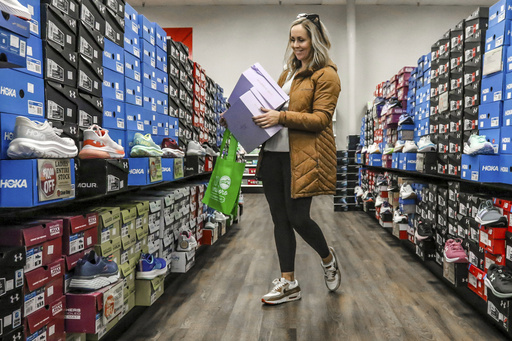
Small enterprises are preparing for significant tariffs that President-elect Donald Trump has signaled he will implement shortly after taking office.
Trump’s proposal includes imposing a 25% tax on all imports from Canada and Mexico, alongside an additional 10% tariff on Chinese goods, as part of his initial executive orders. Previously, he considered a tariff of up to 20% on all other imported items into the United States.
For many small business owners, this implies they may face increased costs for products and services. While proprietors are currently awaiting the final details of these tariffs, they anticipate the necessity to raise prices for consumers.
Laurel Orley, the cofounder and CEO of Daily Crunch, a nut snack company located in Nashville, initially thought her business would remain unaffected as her import levels were low. However, she quickly recognized the broader implications of the tariffs. For instance, she intended to source bags from China to reduce costs by 5 cents per bag, but those plans may now be jeopardized due to the tariffs.
“That was one of our significant plans for 2025, to move all our bags to China for 15 cents each,” Orley explained. “Now, I’m uncertain whether we can achieve savings on the bags once the tariffs are enforced.”
Orley also noted that warehouse costs are rising in response to the anticipated tariffs. Her warehouse provider has reported an increase in demand since the announcement of these tariffs.
“Many companies are stockpiling inventory from overseas to prepare for the tariffs, which is leading to limited warehouse availability and consequently higher costs for everyone,” she indicated.
To navigate these changes, she is working to secure her warehouse contract for 2025 and exploring options for a logistics partner for the upcoming year, hoping to stay ahead of the impending situation.
In Canada, Julie Bednarski-Malik operates Healthy Crunch, a snack company in Mississauga, Ontario, that specializes in allergen-free foods, such as those avoiding peanuts and dairy while being low in sugar.
She markets her products in both Canadian and U.S. retail outlets and expressed concern over how the tariffs would impact consumers on both sides of the border.
“If someone is highly allergic to dairy or soy and can’t find our product in the U.S. because we’re the sole producers, their costs will rise significantly,” Bednarski-Malik emphasized. “These tariffs will not just impact countries like Canada, but they will also burden U.S. consumers.”
While she is postponing any major business changes until the tariffs are fully established, she anticipates increased prices will be inevitable.
“In the end, the consumer will bear the costs because our margins are already so narrow, especially with food prices rising sharply in the last few years,” she stated. “There’s little margin left to keep prices steady while absorbing a 25% increase due to tariffs on our products.”
